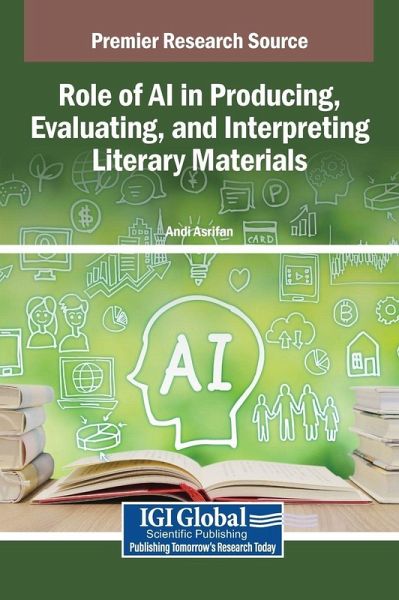
Role of AI in Producing, Evaluating, and Interpreting Literary Materials
Versandkostenfrei!
Versandfertig in 1-2 Wochen
153,99 €
inkl. MwSt.

PAYBACK Punkte
77 °P sammeln!
AI transforms literary studies by playing a role in the production, evaluation, and interpretation of literary materials. From generating creative content to analyzing complex texts for themes, patterns, and stylistic elements, AI tools augment the creative and critical processes driven by human intellect. In production, AI can collaborate with authors or independently generate literary works. In evaluation, it can assist in assessing readability, coherence, and originality. In interpretation, AI enables new insights through textual analysis and cultural comparisons. As these technologies evol...
AI transforms literary studies by playing a role in the production, evaluation, and interpretation of literary materials. From generating creative content to analyzing complex texts for themes, patterns, and stylistic elements, AI tools augment the creative and critical processes driven by human intellect. In production, AI can collaborate with authors or independently generate literary works. In evaluation, it can assist in assessing readability, coherence, and originality. In interpretation, AI enables new insights through textual analysis and cultural comparisons. As these technologies evolve, they prompt questions about authorship, authenticity, and creativity, reshaping literature creation and comprehension. Role of AI in Producing, Evaluating, and Interpreting Literary Materials examines how AI is changing literature from authorship to reader interaction and critical analysis. It explores AI's rising role in producing, evaluating, and interpreting literary materials, including how it may help people write stories, poetry, and prose. This book covers topics such as philosophy, teacher education, and creative writing, and is a useful resource for computer engineers, writers, educators, academicians, researchers, and scientists.












